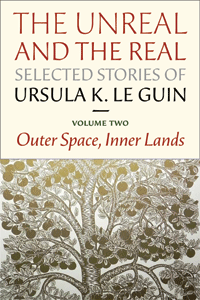Some bloggers have calendars. They mention on their sidebars what they’ll be reviewing when.
I have a calendar, but I’m not very organized. I use it mainly for notes on what to chat about to my doctor.
Note: Tell Dr. that I saw Iowa City Crash.
The Iowa City Crash is a rugby team. I don’t know my doctor well–it’s usually, “You’re doing well and keep bicycling!”–but he has rugby paraphernalia in his office. Last summer I saw a Crash game. I must admit I paid little attention because I was finishing something on my laptop. Nonetheless, it was something to chat about.
Note.: Learn the names of a few players and ask your husband to describe a couple of the “episodes” in the game, or whatever you call them.
I learned Brad Fuhrmann, a coach and player, is Australian, and there are also four or five Irish players.
And I found a quote from Brad Fuhrman in a newspaper: “We expect to win at least one game; otherwise we’re just not trying hard enough.”
Aren’t sports adorable?
If I could just use my calendar wisely, perhaps I could organize my blog along the same principle as chats with my doctor.
Tell blog audience that I read Ursula K. Le Guin’s The Unreal and The Real: Selected Stories of Ursula K. Le Guin, Vol. Two, Outer Space, Inner Lands.
I do intend to write about it. The thing is, I am writing about it in this very post.
 I have one other thing planned, though I so far show no sign of writing it.
I have one other thing planned, though I so far show no sign of writing it.
On Jan. 28, a round-up of Middlebrow American Women’s Literature: Jo-Ann Mapson’s Finding Casey, the sequel to the award-winning Solomon’s Oak; The Painted Girls by Cathy Marie Buchanan, author of The Day the Falls Stood Still); Whitney Otto’s Eight Girls Taking Photos; Sherry Jones’s Four Sisters, Four Queens; and Haunting Jasmine by Anjali Banerjee.
You’ll love my upcoming Middlebrow Women’s Lit post: “otherwise I’m just not trying hard enough.”
And now on to:
 URSULA K. LE GUIN’S The Unreal and The Real: Selected Stories of Ursula K. Le Guin, Vol. Two, Outer Space, Inner Lands.
URSULA K. LE GUIN’S The Unreal and The Real: Selected Stories of Ursula K. Le Guin, Vol. Two, Outer Space, Inner Lands.
Ursula K. Le Guin was the first science fiction/fantasy writer I read as an adult. Growing up, I read E. Nesbit’s books, Jonathan Key’s The Forgotten Door, and A Wrinkle in Time over and over, but then I gave up genre fiction. Later, in my twenties, a friend recommended Le Guin’s The Left Hand of Darkness, and I was amazed to discover parallels between her work and literary writers like Borges and Calvino. Several of her novels and story collections are also reminiscent of Doris Lessing’s, or vice versa.
And many of you know that. But for those of you who don’t, I would put her in line for the Nobel Prize for Literature, except that it seems no American writer will ever win the Nobel again.
 Small Beer Press recently published two volumes of Le Guin’s stories, and I was eager to read them. I read the second volume first, because it is a collection of her science fiction and fantasy stories, selected by Le Guin herself, while the first volume, Where on Earth, spotlights her more “realistic” fiction. (And perhaps I’m not quite as interested in that.)
Small Beer Press recently published two volumes of Le Guin’s stories, and I was eager to read them. I read the second volume first, because it is a collection of her science fiction and fantasy stories, selected by Le Guin herself, while the first volume, Where on Earth, spotlights her more “realistic” fiction. (And perhaps I’m not quite as interested in that.)
Le Guin writes in the introduction of Vol. 2: Outer Space, Inner Lands about the blurring of boundaries between genre fiction and literature. She writes about the relationship between myth, legend, science fiction, fantasy, and magic realism.
She says of genre:
“Genre, a concept which could have served as a useful distinction of various kinds of fiction, has been degraded into a disguise for more value-judgment. The various “genres” are now mainly commercial product-labels to make life easy for lazy readers, lazy critics, and the Sales Departments of publishers.”
“It’s not my job as a writer to make life easy for anybody. Including myself.”
Many of Le Guin’s powerful books could be cross-listed as SF/fantasy and literature, but, with the exception of Lavinia, her historical novel about he Italian princess who marries Aeneas (in The Aeneid), I have found all of them in the SF section. Booksellers shelf Doris Lessing’s science fiction in the literature section, because she began as a literary writer, but Le Guin, best known as an SF writer, and remarkably fluent, doesn’t get the same courtesy.
There are many different kinds of stories in Outer Space, Inner Lands. Some of them take the form of ethnological reports on other planets. In “Solitude,” an ethnologist and her two children, Borno and Serenity, spend several years on Eleven-Soro. Narrated many years later by the ethnologist’s daughter Serenity in the form of a report, the story melds Serenity’s happy memories of her own coming of age with her mother’s sadness and isolation. Serenity, who was a young child when they moved there, was accepted by the inhabitants of the “aunt-ring,” learned the songs and stories the women told, and had an opportunity to “make her soul.” Her mother was not allowed to attend their singing/storytelling sessions.
Serenity learned above all to avoid magic, tekell, “an art or power that violates natural law”: the technology on her home planet, or even just one person trying to dominate another. Her mother calls this superstition, but to Serenity it is common sense: even in marriage, there is tekell, because one person can control the other. “You have no power over me,” she says to her mother when they want to take her back to their home planet.
The family cannot stay together on the planet. Borno must leave with the other boys in adolescence to live away from women and jostle for power. He sticks out the violent life for one year, then comes home and tells his mother he wants to go back to their planet. Serenity’s dilemma is that she loves her family but utterly believes in the society she has been brought up in.
In another thoughful, gripping story, “Nine Lives,” two men, Pugh and Martin, have been alone on Libra Exploratory Mission Base for years. Their first glimpse of a member of an incoming support team on a video communicator floors them: “Do they all look like that? Martin, you and I are uglier than I thought.”
Le Guin writes about the difficulty of meeting strangers. It is particularly tough for Martin and Pugh, alone for so many years.
“It is hard to meet a stranger. Even the greatest extravert meeting even the greatest stranger knows a certain dread, though he may not know he knows it. Will he make a fool of me wreck my image of myself invade me destroy me change me? Yes, that he will. There’s the terrible thing: the strangeness of the stranger.”
But it is even more disturbing when a support team emerges from the ship, and they are shocked to see five men and five women clones–a tenclone. Later, nine of the clones die in a horrible earthquake, and the tenth, who almost dies, is in deep shock. He gradually learns from Martin and Pugh that doing the safe thing is not always the wise thing. Breaking the rules can help one survive.
In my favorite story, “Betrayals,” an elderly woman has retired to a hut outside a remote village to meditate and learn to die. She reads about a planet where there is always peace, takes care of a dog and cat, and allows a Romeo-and-Juliet-type couple to take refuge in her house occasionally for love. But then she discovers that her neighbor, the Chief, a former tyrannical revolutionary leader who served time in prison, is ill with a cough that develops into pneumonia. She doesn’t want to help him–she doesn’t care for him–he is there to die–but a lifetime of habit makes it necessary to do all she can. She learns about the versatility of human beings, and that neither she, nor the chief are ready to die.
Great stories. I like some better than others, but there is not a dud among them.
Now I must get my copy of Volume One.




Three of Le Guin’s stories I keep going back to: The Left Hand of Darkness, The Lathe of Heaven and The Dispossessed. Each is wonderful in its own way. They live somewhere on the borderland between science fiction and fantasy and the unconscious mind. Not many writers can go there.
LikeLike
Le Guin’s work has held up well. She is a good novelist and a good short story writer. I have read several of her short story collections in recent years and she is one of the few short story writers I like. She develops each story like a novella, and indeed many of them are novellas. I really feel as though I get to know the characters.
LikeLike
I found, to my surprise, that I actually enjoyed the first volume, What on Earth, more than Outer Space, Inner Lands. It’s partly because I have already read and loved many of her sci-fi/fantastic shorts (Omelas, Solitude, Acacia Seeds, Silence of the Asonu are all fantastic in different ways), but also because the volume fully displays the deftness of her prose and the complexity of her ideas. Direction of the Road, Buffalo Gals, and the Diary of the Rose are my favourites, and Half Past Four is a very interesting experiment. Definitely check it out.
LikeLike
I enjoy the truthfulness of your diary entries. For me I put down what I mean to do today, or little plans for tomorrow or a blog I mean to do. LeGuin is on Wompo and I’ve “met” and talked or exchanged views by email onto the listserv. I know supposedly the text is what counts, but she disappointed me by her behavior. FWIW, she is actually politically conservative — just as Bob Dixon said.
LikeLike
Isaac, I am looking forward to the first volume. The book is out of stock, so I’ll have to wait a few weeks. I even like the titles of the stories you mention. Lavinia, the historical/mythic novel, is the only “realistic” novel I’ve read by Le Guin.
Ellen, I’m fascinated by people’s “calendar” habits. I am writing a little less now so I have time to think occasionally.
I would love to join WOMPO to meet Le Guin. (But I’m not a poet, so I don’t think that group would work out for me.:)) In her books she is radical, exploring environmental issues and sexism. She is one of the women who really made a difference in “genre” fiction when it was dominated by men. (Perhaps it is still dominated by men: I don’t know.)
LikeLike